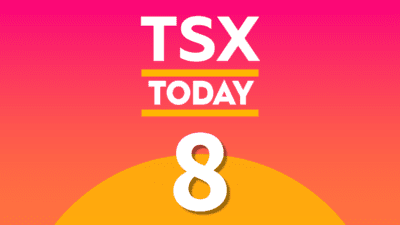Toronto-based robo-advisory firm Wealthsimple, indirectly majority owned by Power Financial Corp., just announced that in addition to its three existing ETF portfolios it offers clients, it’s launching a fourth one that meets the approval of a committee of Shariah scholars assembled to help guide the stock-picking process.
If you’re a do-it-yourself investor, as many Foolish readers are, this probably won’t interest you. However, regardless of whether this is something you’d consider, it’s always good to understand the how and why of other investors.
In the case of Wealthsimple’s new portfolio, it’s going after the 3.2% of Canada’s population who are Muslim and don’t have a low minimum, low fee, high-performance investment option available to them.
Now they do.
Before you think this is a paid commercial for Wealthsimple, let me give you three reasons why non-Muslims ought to consider the company’s latest offering.
A global portfolio
Wealthsimple takes the MSCI ACWI Islamic Index, a group of 800 stocks, including Johnson & Johnson (NYSE:JNJ), the largest weighting in the index at 2.76% as of July 31, 2017, and whittles that down to 50 Islamic-compliant stocks.
“To minimize cost without losing crucial diversity, we pared that list down to 50. In selecting those stocks, we were careful to track the broad market as closely as possible,” states Wealthsimple’s website. “We did that by tracking the sector weights of the broader index and kept our exposure to US stocks at 25 to 35% — the same as our traditional Canadian portfolios.”
So, even though the MSCI ACWI Islamic Index has a 42.9% weighting for U.S. stocks, Wealthsimple has reduced that to 35% or less while upping the weightings of the other countries represented by the 50 stocks, providing investors with a truly global portfolio.
Lower fees
Let’s say you have $10,000 to invest.
Wealthsimple’s growth portfolio invests those funds in seven different ETFs, including the largest portion at 22.5% in the iShares S&P/TSX Capped Cmpst Index Fund (TSX:XIC).
The company charges an annual management fee of 0.5%, or $50. On top of that, each of the seven ETFs charges an annual management fee. The total MER charged by the ETFs is 0.1%, or $10, meaning your total cost — direct and indirect — is 0.6% annually.
As of today, while we don’t have additional details on the Halal portfolio, what we do know is there will be 50 individual stocks and no ETFs, meaning your fee will be 17% lower while meeting the standards of Islamic law.
That’s a pretty good deal if you ask me.
Some good screening criteria
Any investment portfolio is only as good as the criteria used to select a group of stocks. Wealthsimple, working with MSCI, the index developer, along with the Shariah committee, has come up with some basic exclusions.
1. Eligible companies must generate no more than 5% of its total revenue from alcohol, tobacco, pork, defence and weapons, gambling, music, hotels, cinema, and adult entertainment.
I disagree with at least five of those, so it’s not a deal breaker for me.
2. The second criteria have MSCI screening out companies that either make a lot of money from interest such as banks or are excessively leveraged like many oil and gas companies.
So, Wealthsimple has come up with three ratios.
The first is total debt divided by total assets; the second is a company’s cash and interest-bearing securities divided by its total assets; the third is a company’s accounts receivable plus cash divided by total assets.
None of these ratios can be higher than 33.3%.
The first ratio should be part of everyone’s selection criteria because excess debt truly is the devil. It is possible to argue that the second ratio makes sense because, as we’ve seen with Warren Buffett and Berkshire Hathaway Inc. (NYSE:BRK.A)(NYSE:BRK.B), too much cash can be an incredible burden. Finally, the third ratio makes sense, if only because you don’t want to invest in a company that’s having trouble collecting on its receivables.
Bottom line
You can probably do just as well by buying a low-fee global equity ETF. However, it’s an attractive offering just the same that’s worthy of your consideration.









